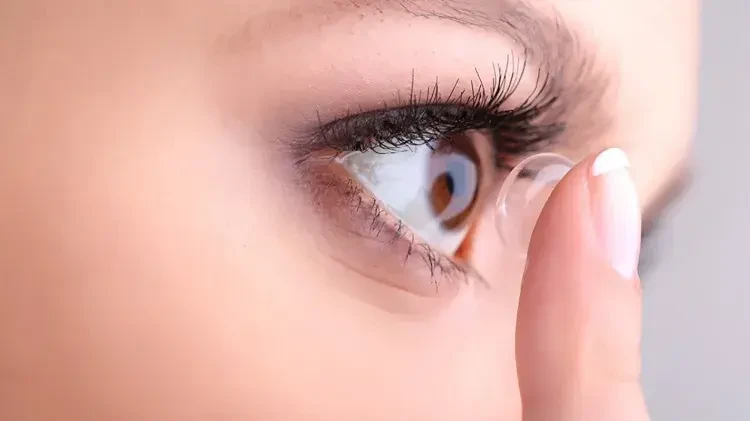- Introduction
Contact lenses are small, curved lenses that are placed directly on the cornea of the eye to correct vision problems such as myopia, hyperopia, astigmatism, and presbyopia. They are a popular alternative to eyeglasses, as they provide better vision correction, better peripheral vision, and a more natural look. However, contact lenses are not without their disadvantages, which we will explore in this article.
- Advantages of Contact Lenses
Convenience
significant advantages of contact lenses is their convenience. Unlike eyeglasses, they do not get in the way during physical activities such as sports or exercising. They also do not get fogged up during cold weather, nor do they get wet during rainy days. Furthermore, they do not obstruct your peripheral vision, which can be a major advantage in certain professions, such as driving or playing sports.
Better Vision
Contact lenses provide better vision correction than eyeglasses. They sit directly on the cornea, which allows for more precise vision correction. They also do not distort your view of the world around you, as eyeglasses can sometimes do. Furthermore, contact lenses can correct a wider range of vision problems than eyeglasses can, such as astigmatism and presbyopia.
More Natural Look
Contact lenses provide a more natural look than eyeglasses. They do not obscure your facial features, and they do not leave marks on your nose or ears. They also do not reflect light in the same way that eyeglasses do, which can be an advantage in photographs or social situations.
More Suitable for Certain Activities
Contact lenses are more suitable for certain activities than eyeglasses. For example, if you enjoy swimming or other water sports, contact lenses can be a better option than eyeglasses, as they do not get wet or fogged up. They are also a better option for individuals who work in dusty or dirty environments, as they do not get dirty or obstructed in the same way that eyeglasses can.
More Cost-Effective in the Long Run
Although the initial cost of contact lenses may be higher than that of eyeglasses, they can be more cost-effective in the long run. Contact lenses do not need to be replaced as frequently as eyeglasses, which can be costly over time. Furthermore, they can be more durable than eyeglasses and less prone to breaking.
- Disadvantages of Contact Lenses
Risk of Infection
One of the most significant disadvantages of contact lenses is the risk of infection. Contact lenses sit directly on the eye, which can make them a breeding ground for bacteria and other microorganisms. If they are not properly cleaned and disinfected, they can cause infections such as conjunctivitis or corneal ulcers.
Dry Eyes
Contact lenses can cause dry eyes, especially if they are worn for long periods of time. They can reduce the amount of oxygen that reaches the eyes, which can cause discomfort and dryness. This can be especially problematic for individuals who work in environments with dry air or spend a lot of time looking at computer screens.
Discomfort and Irritation
Contact lenses can be uncomfortable and irritating, especially if they are not properly fitted or if they are worn for extended periods of time. They can cause itching, redness, and a feeling of dryness or grittiness in the eyes. They can also cause discomfort if they become dislodged or move around on the eye.
Difficulty in Handling
Contact lenses can be difficult to handle, especially for individuals who are not used to wearing them. They can be difficult to insert and remove, and they require proper cleaning and storage. Furthermore, they can be easily lost or damaged if they are not handled properly.
Additional Expense
Contact lenses can be more expensive than eyeglasses, especially if they are disposable or require special cleaning solutions or storage cases. They can also require more frequent visits to the eye doctor for checkups and refitting.
Not Suitable for Everyone
Contact lenses are not suitable for everyone. Some individuals may have medical conditions or eye problems that make it difficult or impossible to wear contact lenses. Furthermore, some individuals may not be able to tolerate the discomfort and irritation that contact lenses
can cause. Additionally, individuals who have jobs that require them to work in dirty or dusty environments may not be able to wear contact lenses due to the risk of eye infections.
Conclusion
Contact lenses offer many advantages over traditional eyeglasses, such as convenience, better vision correction, a more natural look, and suitability for certain activities. However, they also have disadvantages, such as the risk of infection, dry eyes, discomfort, difficulty in handling, additional expense, and unsuitability for some individuals. Ultimately, whether contact lenses are the right choice for you depends on your individual needs, preferences, and lifestyle.

